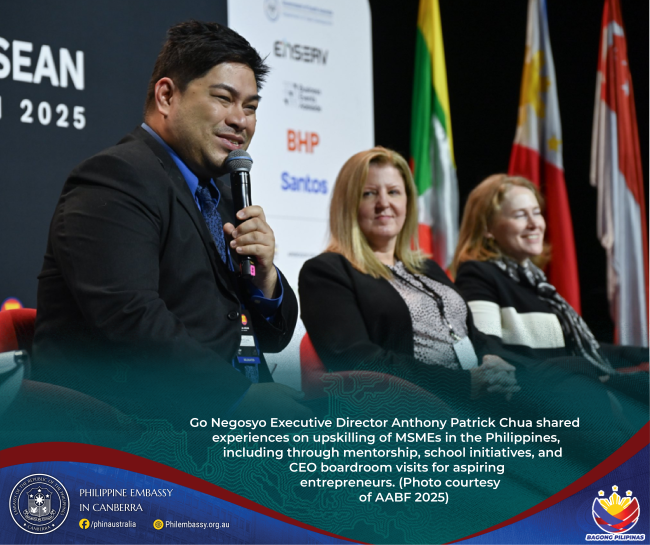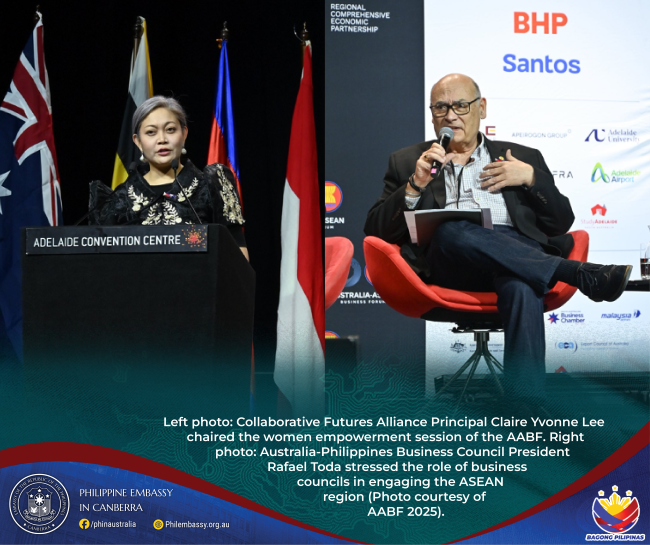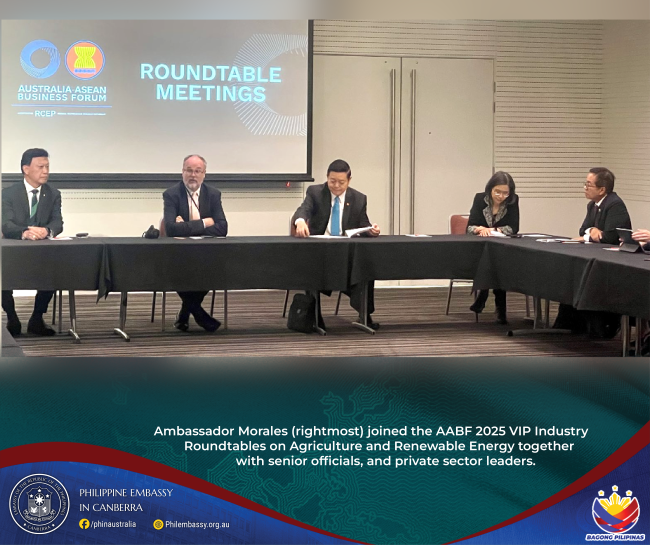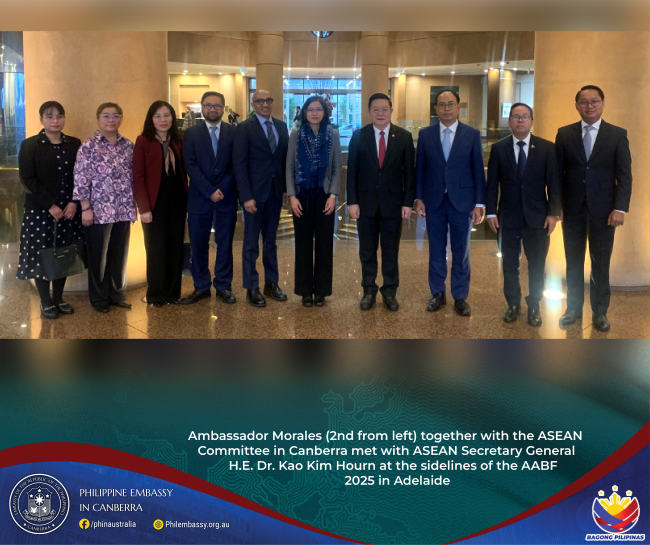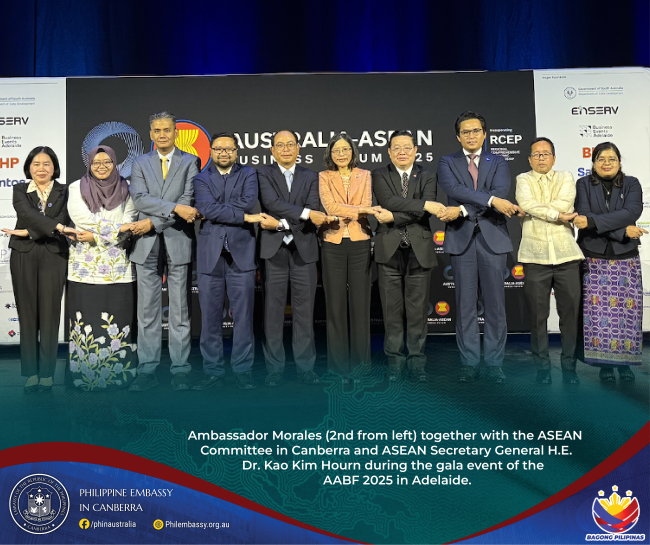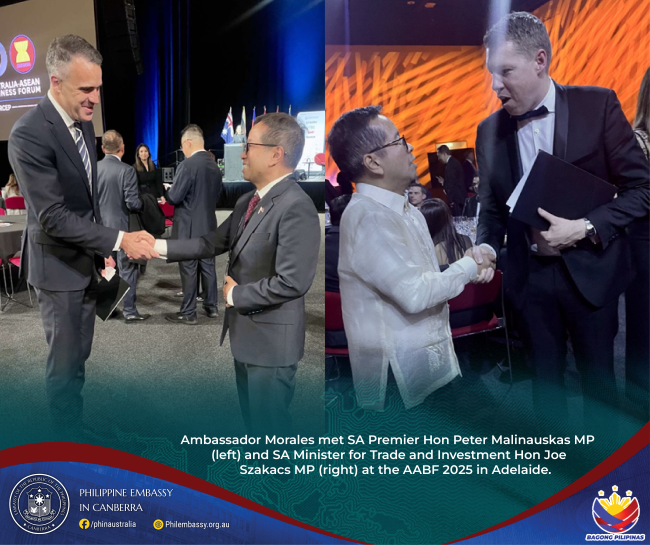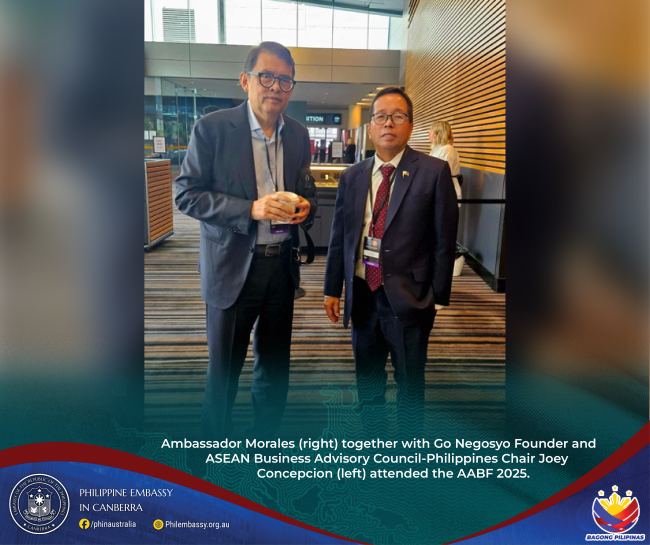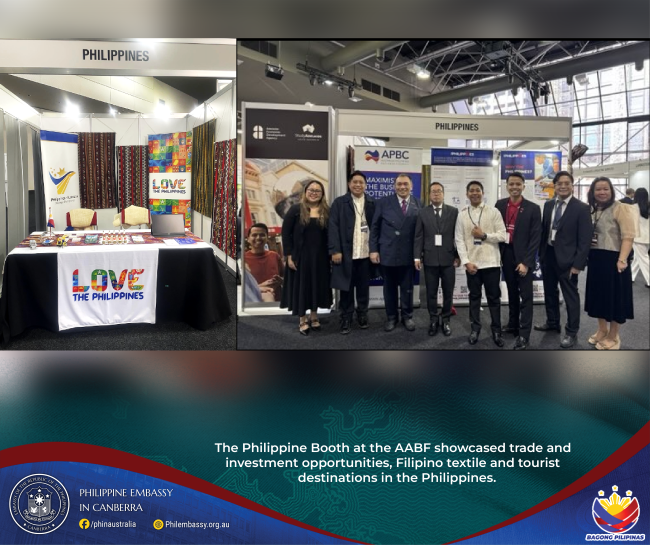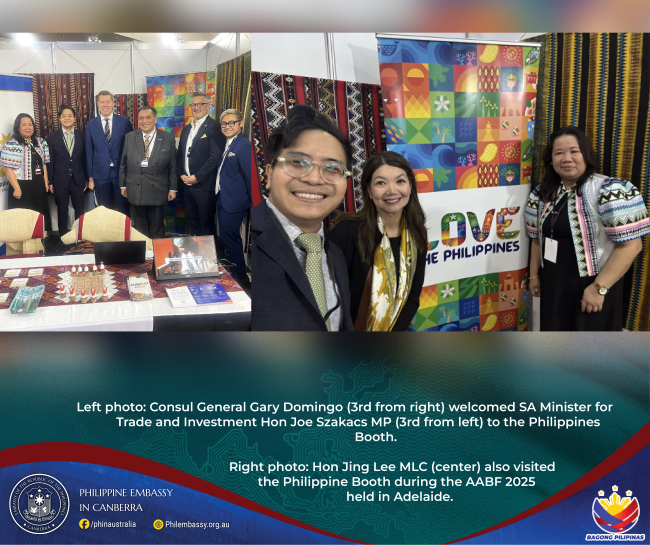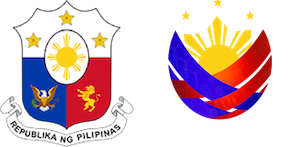
PRESS RELEASE
Philippine Embassy, Canberra
1 Moonah Place, Yarralumla, ACT 2600
www.philembassy.org.au *Tel. No. 02-6273-2535*

27 August 2025, ADELAIDE - The Philippines underscored commitment to driving people-centered, sustainable, and inclusive growth at the ASEAN-Australia Business Forum (AABF) held on 26–27 August 2025. The event brought together more than 400 participants from ASEAN, Australia, and the Indo-Pacific, including senior government officials, industry leaders, and the ASEAN Secretary-General, H.E. Dr. Kao Kim Hourn. Discussions across multiple sessions explored opportunities for incorporating the Regional Comprehensive Economic Partnership (RCEP) and collaboration in renewable energy, agriculture, education and skills, MSME development, and digital transformation.
Representing the Philippines, Ambassador Antonio Morales participated in high-level roundtables on renewable energy and agriculture, where he emphasized the need for stronger ASEAN-Australia cooperation on sustainability, food and energy security, and climate resilience. He also delivered the closing remarks of the Forum, highlighting the Philippines’ role as incoming ASEAN Chair in 2026. Other Filipino representatives included Consul General Gary Domingo, Australia-Philippines Business Council (APBC) President Rafael Toda, Collaborative Futures Alliance Principal Adviser Claire Yvonne Lee, and Go Negosyo Executive Director Anthony Patrick Chua, who all served as panelists across various sessions.
Consul General Gary Domingo discussed the Philippines’ forward-looking initiatives in urban agriculture, organic farming, and climate-smart technologies, including the use of AI-driven crop monitoring and hydroponics. He emphasized integrating both scientific and traditional knowledge to empower indigenous farmers.
APBC President Rafael Toda underscored the importance of cultural understanding and trust-building in advancing trade and investment between ASEAN and Australia. He highlighted that beyond legal frameworks like the RCEP, genuine engagement requires cultural fluency and awareness to build long-term, meaningful business relationships. Meanwhile, Go Negosyo’s Anthony Patrick Chua shared successful Philippine models in MSME development, such as the “3Ms framework” – money, market, and mentorship and advocated scaling these approaches regionally to nurture entrepreneurship and innovation across ASEAN.
In his closing address, Ambassador Morales highlighted that ASEAN’s youthful population and dynamic economies present compelling opportunities for global investors. He emphasized economic security as an essential component of national security and reaffirmed that trust, dialogue, and collaboration are the foundations of a sustainable, inclusive, and prosperous region.
Ambassador Morales also previewed the Philippines’ priorities for its ASEAN Chairmanship in 2026, which will coincide with the 80th anniversary of diplomatic relations between the Philippines and Australia. The Philippines will pursue a future-ready, people-focused agenda centered on peace, maritime security and climate resilience. He invited Australian investors to align their priorities with these goals, noting that partnership in these areas will help secure shared prosperity and resilience across the region.
Complementing the Philippines’ active participation in the plenary sessions was the Philippine Booth at the AABF Exhibition Hall. The booth featured colorful Philippine textiles and decor that caught the attention of attendees. It showcased trade and investment opportunities, as well as tourist destinations in the Philippines. Visitors received Philippine-branded pens and notepads as souvenirs, while key dignitaries, including South Australia Minister for Trade and Investment Joe Szakacs MP and Legislative Council Member Jing Lee, stopped by to express their support.
The Philippine booth also attracted businesses from the education, recruitment, and outsourcing sectors, who expressed strong interest in exploring opportunities in the Philippines. The Philippines’ young, skilled, and English-speaking workforce, combined with its growing digital economy, made it an attractive destination for Australian firms seeking to expand their regional footprint.
The Regional Comprehensive Economic Partnership is a free trade agreement among 15 countries: the 10 ASEAN members (Brunei Darussalam, Cambodia, Indonesia, Laos, Malaysia, Myanmar, the Philippines, Singapore, Thailand, and Vietnam) plus Australia, China, Japan, New Zealand, and South Korea. RCEP, the world’s largest trade pact by GDP, strengthens supply chain integration, enhances market access, and is projected to boost regional trade and investment flows, contributing significantly to economic growth across its member states. – END

